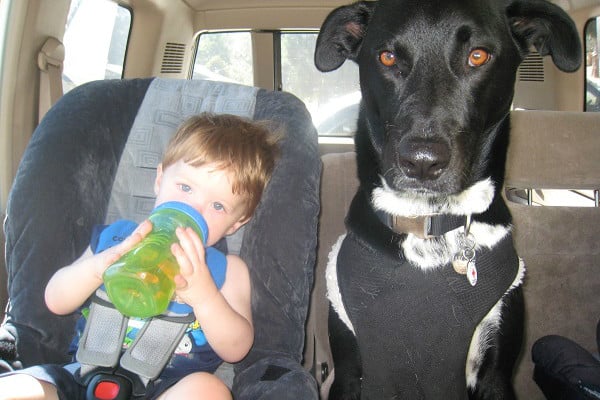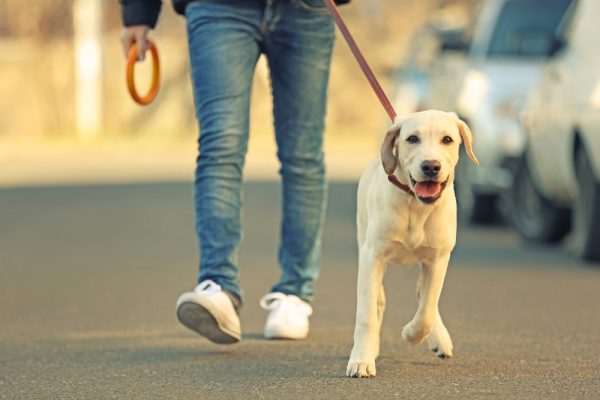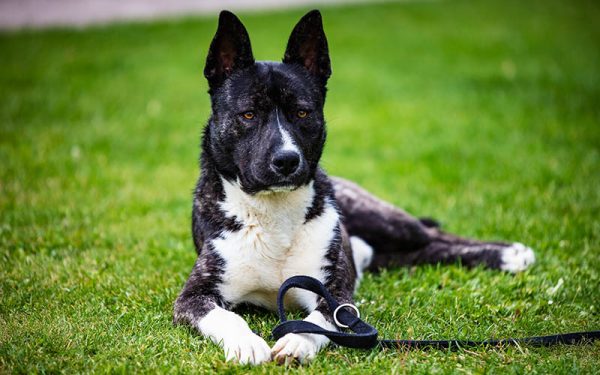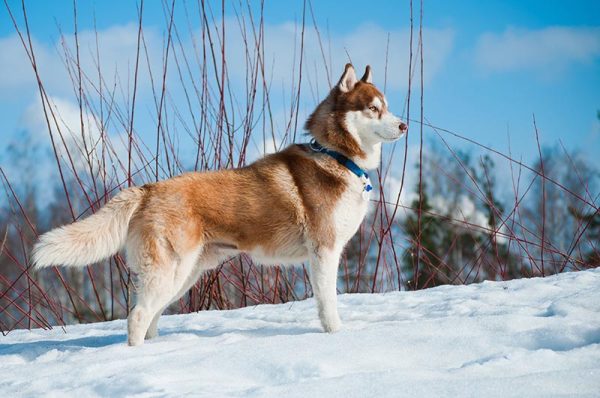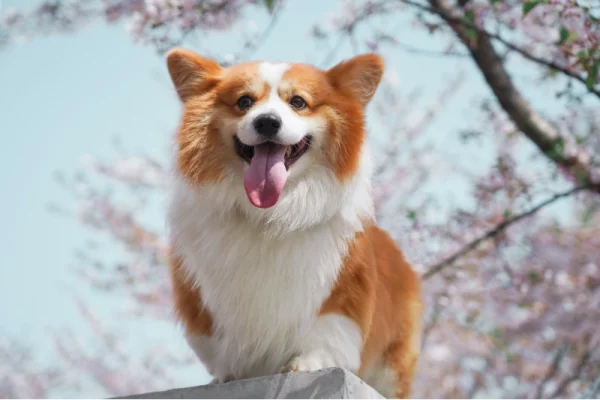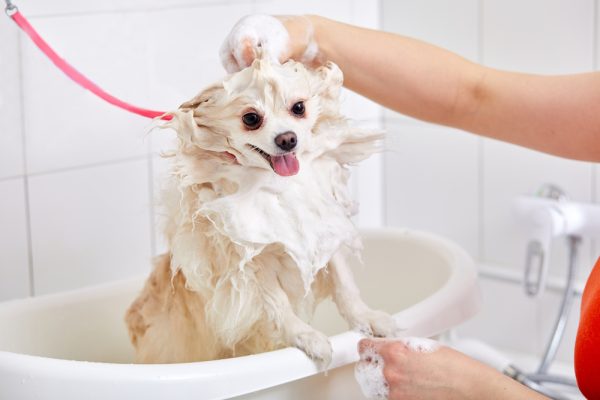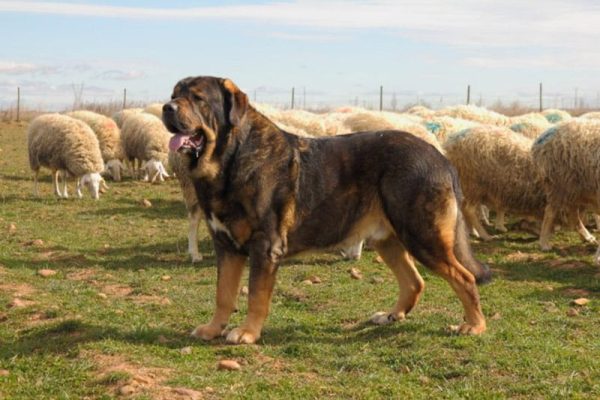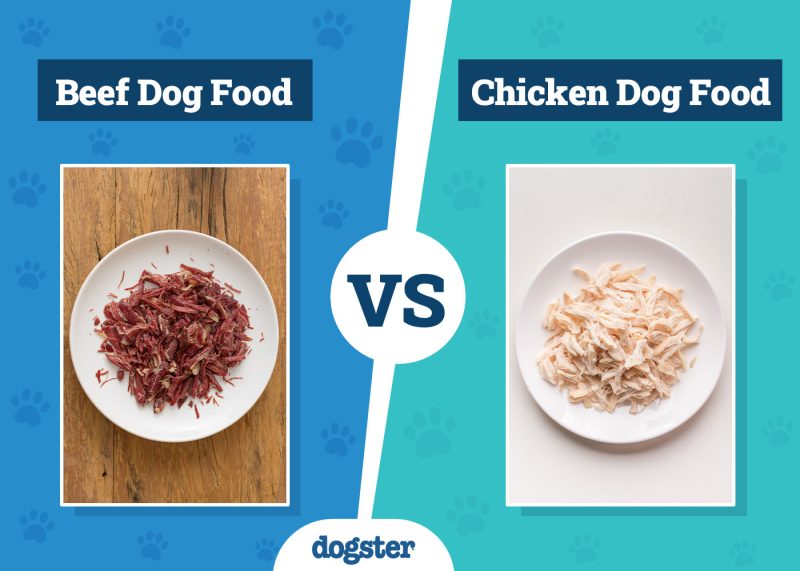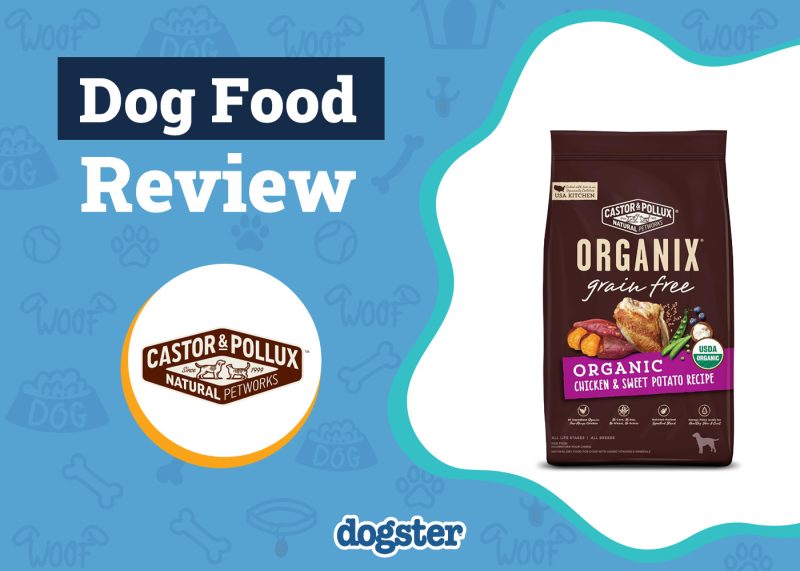In this article
View 8 More +The Wire Poo is a crossbreed of the Wirehaired Fox Terrier and the Poodle. He’s an active and playful dog who gets his high energy threshold from his ancestry of hunting breeds. The Wire Poo is an affectionate dog; some may even call him needy.
He’s retained some of his ancestral prey drives and might chase small animals and cats, even if appropriately trained. You’ll have to keep an eye out when you take him for a walk! He might find himself overcome with the urge to chase, just like his ancestors were bred to do.
Breed Overview
Height:
11 – 16 inches
Weight:
30 – 33 pounds
Lifespan:
12 – 15 years
Colors:
Black, cream, white, brown
Suitable for:
Companionship, hunting, active households
Temperament:
Energetic, affectionate, friendly
Wire Poos don’t do well when left alone for too long. He has a lot of love to give and won’t be happy unless his love is reciprocated post-haste. He’ll need plenty of time to snuggle and play with you, or he might start to act out to get your attention.
His high energy means he’s an excellent option for people looking for a dog to do sports with. Whether outdoor or indoor, he’s got a zeal for staying active and will be happy to get down and dirty with whatever you want to do!
Wire Poo Characteristics

Wire Poo Puppies
Dogs sold at a higher price are generally better taken care of than those sold at a lower price. Many of these dogs may come with the first round of vaccinations and proof of pedigree lineage. They will usually be tested for hereditary illnesses based on their ancestral breeds.
Any prospective pet parents should ensure that their breeder can furnish them with papers proving that genetic testing has been done and the results. A responsible breeder will do their due diligence to test their dogs for hereditary illnesses common in their ancestral breeds.
If you are looking for a loving and friendly companion dog, don’t overlook the Wire Poo.


Temperament & Intelligence of Wire Poo
Wire Poos are affectionate to a fault. This dog can be outright needy when it comes to affection. He wants to play and cuddle with his favorite people all day long. He may develop separation anxiety if left alone for too long and might become destructive.
The Poodle is the world’s second most intelligent dog, and the crossbreed aims to pass that intelligence down. A Wire Poo is generally pretty easy to train. He’s brilliant, and their loyal and affectionate natures mean that it’s easy to harness that intelligence for good.
Are They Good with Children? 👪
The great news is that Wire Poos are fantastic family dogs that do well with children. His boundless energy means that he’ll have no shortage of energy to run around and play with your kids, indoors or outdoors. Wire Poos are also friendly and tolerant for children who are still learning how to interact with dogs.
This tolerance is not an excuse to allow your children to mistreat your dog, however. He will understand if your children don’t yet know how to treat dogs with respect, but he is smart enough to know they can learn.
You should always supervise your children when they’re first learning how to interact with dogs and any animal for that matter. Doing so will protect not just your children but your dog, too.
Are They Good with Other Dogs? 🐶
Wire Poos are generally good with other dogs, particularly those larger than themselves. With toy breed dogs, he may feel compelled to chase and hunt them. He’s brilliant. So, he can be trained to leave his housemates alone. But, his instinctual drives to chase and hunt will always be there.
Are They Good with Other Animals? 😽
Wire Poos can present a relatively high danger threshold to other animals, small animals especially. As hunting dogs, they’re bred with a strong prey drive. Poodles are waterfowl dogs, and Fox Terriers are meant for flushing foxes out of their dens. So, he can pose a threat to even small dogs if not trained correctly.

Things to Know When Owning a Wire Poo
Food and Diet Requirements 🦴
Because of how active he is, the Wire Poo will eat more than other dogs his size. An adult Wire Poo can eat 2.5 or more cups of food daily without gaining any weight. Your dog’s size will be the best indicator of whether you need to feed him more or less. If he’s gaining weight, feed him less and vice versa.
Exercise 🐕
The majority of concerns with Wire Poos should be in the amount of attention and exercise that he needs. Wire Poos are active and intelligent; he won’t be satisfied staying home alone all day and relaxing by the fireplace. If he isn’t exercised properly, he might start to become destructive.
Your Wire Poo will need at least 45 minutes of exercise a day, and it would be best if that exercise were mentally stimulating as well. Idle minds are the devil’s playground, and an idle dog mind may chew up your sofa.
Training 🎾
Wire Poos do great in obedience training because they’re so intelligent. However, if he takes after his Poodle parent more strongly, he may have a bit of a stubborn streak. The Wire Poo is generally a very loyal dog and eager learner, so it’s not hard to get him doing tricks to impress even the coldest of hearts.
Grooming ✂️
Wire Poos do not shed much. Both Poodles and Wirehaired Fox Terriers have low shedding. What kind of grooming your dog needs will depend on which parent he takes after.
Poodles don’t have fur; they have hair. So while a furred dog will grow fur to a certain length, Poodle hair grows indefinitely until it’s cut. A Wire Poo who takes after his Poodle parent will need to be professionally groomed to keep his coat in good condition.
Wire Poos need to be brushed daily to keep their fur in check outside of professional grooming. His fur will be wavy or curly, taking after his parents, and may get tangled if it isn’t brushed out.
- You might also be interested in: Best Dog Wipes: Reviews & Top Picks
Health Conditions 🏥
Mixed breed dogs are generally healthy because of the widened gene pool. However, they can inherit hereditary conditions from both sides of the family, widening the number of illnesses pet parents will need to look out for.
- Hypothyroidism
- Skin Problems
- Eye Problems
- Bloat
- Patellar Luxation
- Addison’s Disease
- Cushing’s Disease
- Legg-Calvé-Perthes Disease
- Hip Dysplasia
Minor Conditions
- Hypothyroidism: Hypothyroidism is an underproduction of hormones in the thyroid gland, which controls the metabolism. Hypothyroidism slows the metabolism down and can make the dog gain weight. The condition can be managed well with medication and monitoring of the diet.
- Skin Problems: Both breeds are also prone to mild skin problems like allergies; a bit ironic since these dogs are hypoallergenic for people.
- Eye Problems: Poodles are prone to minor eye problems like eye infections.
Serious Conditions
- Bloat: Bloat occurs when a dog’s stomach fills with gas and then twists on itself, cutting off circulation. If not treated, bloat can be deadly as the tissues of the dog’s stomach will die and become necrotic. Bloat can affect any dog, but larger dogs seem to be more prone to it. Avoiding vigorous exercise and large meals can help prevent bloat. Split your dog’s meals up into smaller portions given throughout the day, rather than one or two large portions.
- Addison’s Disease: Addison’s Disease is when your dog’s adrenal glands stop producing the hormones they need to live. Without these hormones, your dog’s body will deteriorate; Addison’s Disease can result in death if not treated.
- Cushing’s Disease: Cushing’s Disease is when the dog’s pituitary gland creates too much adrenocortical. The increase in adrenocortical causes the dog to become extremely thirsty and urinate often. They may also lose muscle mass and become weak. Cushing’s Disease is most common in elderly dogs. So, while Cushing’s Disease is not particularly dangerous when managed correctly, older dogs tend to die of unrelated causes soon after diagnosis.
- Legg-Calvé-Perthes Disease: Legg-Calvé-Perthes Disease is a spontaneous degeneration of the femur bone. The exact cause of Legg-Calvé-Perthes disease is unknown. Dogs who have it experience pain and inflammation of the joint. They may experience lameness. The onset is typically between the ages of five and eight months, and the effects will last for the dog’s entire lifetime.
- Hip Dysplasia: Hip Dysplasia is another condition that affects the dog’s hips. Hip Dysplasia occurs when the dog’s hips are malformed, causing them to fit into the socket improperly. Left untreated, Hip Dysplasia can cause lameness.Hip Dysplasia is best avoided rather than treated. While most cases will be unavoidable, reducing the rigorous exercise your dog does while they’re still growing can help prevent the dog from injuring a still-growing hip.
Male vs. Female
Male Wire Poos tend to be significantly taller than females. Whether this is due to breeding stock being taken from different-sized Poodles or a genetic difference between males and females is unknown.

3 Little-Known Facts About the Wire Poo
1. Wire Poos inherit a strong prey drive from their parent breeds
As a mix of the Wire Fox Terrier and Poodle, the Wire Poo will inherit traits from both parent breeds that have a history rooted in hunting. This likely results in a high prey drive—the natural instinct to chase and capture smaller animals or objects perceived as prey. Given this, if you’re thinking of introducing a Wire Poo into your family, make sure this won’t pose any risk to other smaller pets you may have and always keep an eye on them around small animals.
2. Fox Terriers have won more Westminster show titles than any other breed.
Fox Terriers have the Best in Show awards in Westminster with 18 wins between the Wirehaired Fox Terrier and the Smooth Fox Terrier. Of those 18 wins, 14 belong to Wirehaired Fox Terriers!
3. Poodles come in three sizes, but all of them follow one breed standard.
While Poodles can be found in three sizes, the breed standard is the same, just scaled up or down. All purebred Poods, especially those competing in shows, will have the characteristic poodle appearance.

Conclusion
Wire Poos are an up-and-coming designer dog breed that has shaken the dog world with their cute faces, sharp minds, and hypoallergenic coats. Prospective pet parents looking for an active family dog who can keep up with their kids need not look further.
These dogs are not for those who want to relax on the weekends or those singles who will be working out of the home all day. However, those with the time and energy to give to their Wire Poo won’t be disappointed. Wire Poos have tons of energy and love waiting for your family!
See also:
- Poo-ton (Poodle & Coton de Tulear Mix) Dog Breed: Info, Pictures & Care
- Woodle (Welsh Terrier & Poodle Mix): Info, Pictures, Care & More


